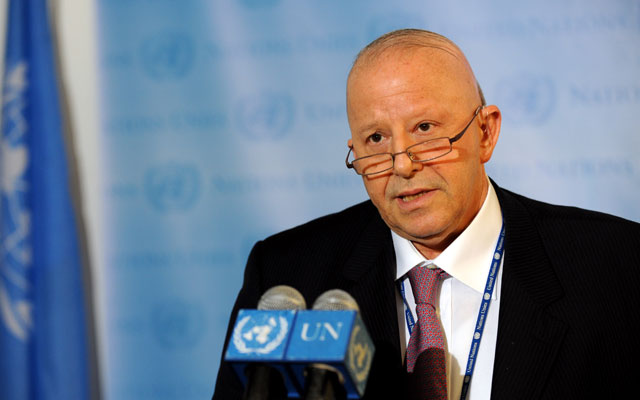The Arms Trade Treaty, Day One: Potential Roadblocks to Agreement
Ted Bromund /
The “final” negotiating conference on the Arms Trade Treaty (ATT) opened in New York at the United Nations on Monday.
As we have explained, we believe the ATT is a bad idea, will not work, and poses numerous prudential risks to U.S. interests. But now that the conference has started, it is time to assess the main controversies, which have become clear as the opening statements by national delegations concluded.
Many of the issues the delegations raise are for show, though they still set dangerous precedents. Virtually every developing nation demands that the treaty provide “implementation assistance,” a code word for foreign aid. The current treaty draft already (unwisely) provides this, but the developing nations have nothing to lose by asking for more.
Even more nations demand the full inclusion of ammunition within the treaty’s scope, which the U.S. opposes on the grounds that it is impractical. Knowing this, the delegations are mostly engaging in U.S.-bashing, though they are also setting out an agenda for future treaty revisions.
The president of the conference, Australian Peter Woolcott, has run a tight ship and worked hard in advance to smooth the conference’s procedural path. Last July, a squabble over the seating of Palestine consumed more than two days; this March, the substance of the conference was underway in 90 minutes. But broader procedural difficulties remain. The conference will run entirely in plenary—i.e., as a committee of the whole, with more than 190 nations speaking on every subject—which will make dealing with substantive issues challenging. Nations such as Iran have also blocked a preliminary legal scrub of the existing draft treaty, which will make the plenary format even more problematic.
But in the end, two groups of issues will pose significant problems. First, there are the goals of the true believers—mostly but not exclusively in the developed world, especially in Europe—who want the treaty to cover loans and gifts of conventional arms, full coverage of parts and components, the inclusion of technologies for the manufacturing of conventional arms, and the public reporting of all arms transfers. Above all, the true believers want to ban transfers where there is a “substantial risk” to human rights—not, as the current text has it, an “overriding risk.” Most of this is unacceptable to the U.S., not least because it would be incompatible with the U.S. export control system.
Second, there are the developing nations, the autocracies, and the dictatorships, who want to use the treaty to eliminate any possibility that they will be challenged by an armed domestic opposition. They therefore want the treaty to focus on the “rights of importing nations”—i.e., the right of dictatorships to buy guns. They do, of course, support the “inalienable right of self-determination” against colonialism, i.e., terrorism against Israel and the U.S. But apart from their favorite terrorists, they demand that the supply of arms be limited only to states and that sales or transfers to non-state actors or unauthorized “end-users” (i.e., private citizens) be banned. Finally, they want a treaty “immune from politicization,” i.e., any criticism of their miserable record on human rights. All of this is unacceptable to the U.S. because it would pose a serious challenge to rights protected by the Second Amendment, as well as to the broader American foreign policy goals and interests.
In between these two groups sits the U.S., and, with even less enthusiasm for various reasons, the other four members of the U.N. Security Council, which want a treaty that is “simple, short, and easy to implement.” The overriding question of the next two weeks is whether the center will hold or whether the extremists on either side—or both—will take over and either compel a U.S. veto or issue a veto themselves.
But today, the most interesting statement at the conference so far came from Mexico, speaking on behalf of 116 nations. On the basis of a Mexican statement last July, we have been told for months that the draft treaty text then commanded international support and was selfishly blocked by the U.S. But today, Mexico’s group acknowledged that “this text needs considerable improvement.… [We] also need to address existing loopholes that remain in the text.… A weak ATT could serve to legitimate the irresponsible and illegal arms trade.” So the claim that the draft text was very close to representing a satisfactory consensus was false. That would be shocking if these negotiations were taking place anywhere but the U.N.

